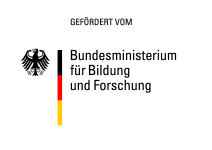The MiWa project is a joint research project of 12 German research institutions dedicated to assess the impact of microplastics on the water cycle. One major part of MiWa is to tackle analytical challenges in detecting synthetic polymers in different matrices, including wastewater, surface waters, drinking water, and ground water as well as river sediments. Applying a range of analytical techniques (µFTIR and µRaman spectroscopy, pyrolysis GC-MS, TGA-FTIR/MS, TED-GC-MS, ICP-MS) the aim is to provide a toolbox of reliable, harmonized analytical methods.
The second part of MiWa, coordinated by Martin Wagner, is dedicated to understanding the biological impacts of microplastics in freshwater ecosystems. We investigate the toxicity in cell-based systems, aquatic invertebrates, and fish. The Frankfurt team focuses on the potential tissue infiltration of very small microplastics, the induction of inflammatory processes and stress in non-model species using a transcriptomics approach (RNAseq, qRT-PCR), and the toxicity of virgin vs aged microplastics.
Partners: Technical University Berlin (coordinator), Bundesanstalt für Materialforschung und -prüfung, Technische Universität München, Hochschule Fresenius, Umweltbundesamt, Technologiezentrum Wasser, Berliner Wasserbetriebe, Helmholtz Zentrum für Umweltforschung, Umweltbundesamt Bad Elster, Universität Tübingen, Goethe-Universität Frankfurt am Main, Universität Heidelberg
Website: www.nawam-miwa.de
Start: March 1st, 2016
End: August 31th, 2019
Funding agency: Federal Ministry of Education and Research, Project 02WRS1378I within the focus area ReWaM (Regional Water Resources Management for Sustainable Protection of Waters in Germany)
Budget: EUR 3.5 Mio

